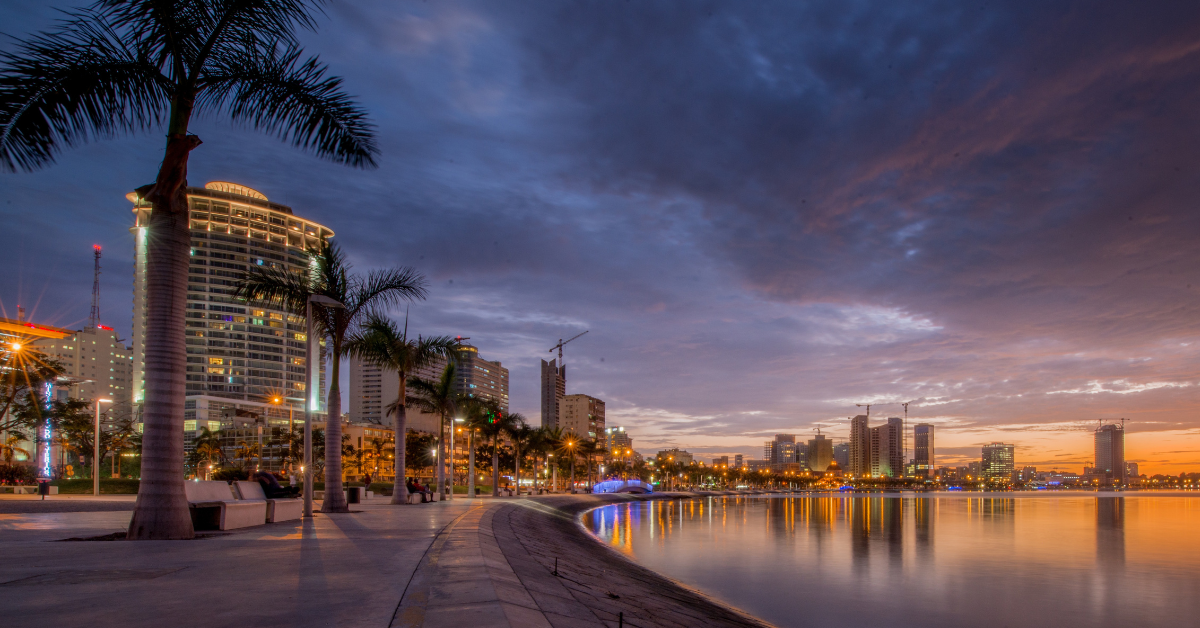Luanda, the capital of Angola, is written only in katakana in Japanese and has no official kanji notation. For many Japanese people, Luanda remains a distant and little-known city, yet it carries diverse images ranging from a resource hub to a growing metropolis. This article explores these perceptions in detail.
The Notation of Luanda in Japanese
Luanda comes from the Portuguese “Luanda,” and in Japanese it is written only in katakana as ルアンダ. This method respects pronunciation and avoids confusion for readers. Cities that entered Japan through Chinese texts or long-standing cultural exchanges once had kanji notations such as 倫敦 (London) or 巴黎 (Paris). However, Luanda never followed such a historical route, and thus no kanji has ever been assigned.
Foreign city notation depends on historical background and depth of relations with Japan. Cities with little direct cultural connection, like Luanda, are limited to katakana notation.
| City | Katakana Notation | Historical Kanji | Common Modern Notation |
|---|---|---|---|
| London | ロンドン | 倫敦 | ロンドン |
| Paris | パリ | 巴黎 | パリ |
| Luanda | ルアンダ | None | ルアンダ |
The Image Japanese People Have of Luanda
Although Luanda is not widely recognized as a tourist destination in Japan, several typical impressions are formed through news reports and international media.
- A resource hub
Angola is rich in oil and diamonds, with Luanda serving as the main export center. Thus, Japanese people often associate Luanda with being a “city of resources.” - A rapidly growing metropolis
After the civil war, Luanda transformed into a modern city with high-rise buildings. For Japanese people, it represents “a symbol of Africa’s growth.” - A city of inequality
Despite its development, unserviced neighborhoods still exist, and economic disparity is striking. This reality is conveyed through media, leaving a complex impression. - A distant foreign capital
Due to geographical distance and limited cultural exchange, Luanda is often seen as an unfamiliar capital.
| Typical Japanese Impressions | Explanation |
|---|---|
| Resource city | Known as a hub for oil exports |
| Growing metropolis | Seen as a symbol of modernization |
| City of inequality | Wealth and poverty coexist visibly |
| Distant capital | Physically and culturally remote |
Luanda as a City of Economy and Resources
The most defining feature of Luanda is that it is the center sustaining Angola’s economy. Oil accounts for much of the country’s revenue and strongly influences relations with foreign nations, including Japan.
In Japanese media, Luanda usually appears in contexts related to resources and international economics. It serves as a base when Japanese companies engage in oil development or as a venue for global conferences.
Yet, rapid growth has created challenges. The central area of Luanda boasts luxury hotels and skyscrapers, but its outskirts still suffer from inadequate infrastructure. This visible wealth gap contributes to a mixed impression among Japanese people: a city where prosperity and poverty coexist.
| Feature | Content |
|---|---|
| Resources | Rich in oil and diamonds |
| Growth | Rapid development after civil war |
| Inequality | Large gap between rich and poor |
| Diplomacy | A critical hub in resource diplomacy |
Luanda Seen Through Sports
Luanda is also a center of sports. The most popular competitions in Angola are basketball and football, and Luanda plays a central role in these sports.
Angola is renowned as one of Africa’s basketball powerhouses, and Luanda serves as the base of its national team. Japan has occasionally faced Angola in international tournaments, allowing sports fans to become more familiar with Luanda.
In football, Luanda is equally important as the venue for domestic league matches and international events. Sports symbolize the city’s culture, conveying the energy and vitality of its youth to Japanese audiences.
| Sport | Features |
|---|---|
| Basketball | One of Africa’s strongest teams; plays in global tournaments |
| Football | Hosts domestic league and international matches |
| Youth culture | Sports drive vibrancy and exchange |
| Tournaments | Luanda has hosted major events |
Recognition of Luanda in Japan
Recognition of Luanda in Japan remains limited. It is rarely introduced as a travel destination, and most Japanese people know of it through news about resources and diplomacy.
However, recognition is slowly broadening through sports. For instance, when Angola competes in basketball world championships or the Olympics, Japanese viewers hear Luanda mentioned. This introduces Luanda as a city not only of resources but also of culture and sports.
| Pathway to Recognition | Content |
|---|---|
| News | Reports on resources and economy |
| Diplomacy | Mentioned at events like TICAD |
| Sports | Seen in basketball or football matches |
| Education | Appears in academic studies and courses |
Conclusion
Luanda has no kanji notation in Japanese and is written in katakana as “ルアンダ.” While still a relatively unfamiliar city for most Japanese people, it plays an important role as the capital of a resource-rich nation, Angola.
Moreover, Luanda is increasingly recognized as a hub of sports and youth culture, adding new layers to its image.
For Japanese people, Luanda is often perceived as a “resource city,” a “developing metropolis,” and a “city of inequality.” Yet as more focus is placed on its culture and people, the image of Luanda may become more multi-dimensional and approachable in the future.






